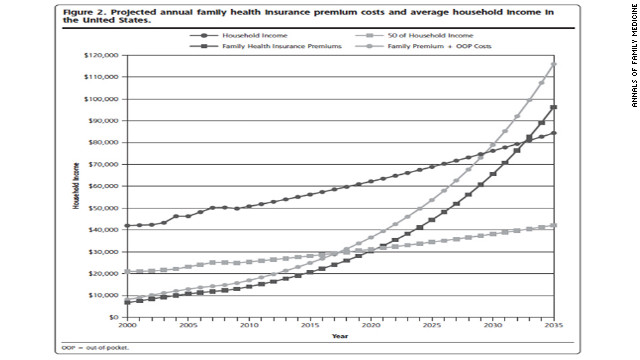The House-passed plan to end the annual congressional ritual of blocking deep, automatic cuts in Medicare reimbursements for doctors has just run into more hot water.
Before the Senate takes up the measure after a two-week break, Paul Spitalnic, the chief actuary for the Centers for Medicare and Medicaid Services, released a new analysis. It cautions that the bill passed by the House in March will increase Medicare spending by $150.5 billion in the coming decade – with much of that tacked onto the deficit.
Related: Medicare ‘Doc Fix’ Could Face Conservative Opposition in Senate
In addition, rising physician payment rates and inflation over time would undercut the new approach and likely force Congress to overhaul the reimbursement legislation once again by the year 2025.
“While physician payment updates would be adequate for many years, there are a number of concerns about the specified updates in the long run,” wrote Spitalnic, the actuary. “If not addressed by subsequent legislation, we expect that access to, and the quality of, physicians’ services would deteriorate over time for beneficiaries.”
Before its two-week recess, the House overwhelmingly passed a rare bipartisan bill to end the need for what is now known as the “Doc Fix,” an annual measure taken by Congress to override one of its own pieces of legislation. A handful of conservatives in the Senate has been raising objections about its cost and may attempt to block it.
It all started with Balanced Budget Act in 1997, which contains a provision meant to limit the growth of Medicare costs by imposing what was called a “Sustainable Growth Rate” formula. The SGR, however, quickly became controversial as it was found to require large cuts, some as much as 20 percent, in reimbursement for doctors who treat Medicare patients. Many of them threatened to stop seeing Medicare patients unless the cuts were put in abeyance.
Related: Will the Medicare ‘Doc Fix’ Lead to Real Entitlement Reform?
It’s clear that with or without the Budget Control Act, the doctor and hospital costs to Medicare are unsustainable, and premiums will ultimately exceed family income. (See chart).

The agreement struck between House Speaker John Boehner (R-OH) and Minority Leader Nancy Pelosi (D-CA) and passed by the House provides a new way of calculating the annual payments. But it’s a very costly approach: The permanent fix would add $141 billion to the deficit over the first 10 years and could go as high as $500 billion over two decades, as previously reported here.
One of the major selling points of the House bill was that the legislation offered a permanent solution to the doctor reimbursement problem. Now Spitalnic is indicating that’s not the case.
“Rather than a permanent replacement to the Sustainable Growth Rate, it is much more likely that the House doc fix will be a shorter-term patch requiring another series of patchwork legislation just nine years from now,” wrote Paul Winfree, an economic policy expert with the Heritage Foundation.
Related: What You’ll Pay for the Medicare ‘Doc Fix’
The Heritage Foundation is urging the Senate to block the House-passed plan and instead revise it to require that it is fully paid for with offsetting spending cuts.
Sen. Jeff Sessions (R-AL), who criticized the House deal, along with a handful of other conservatives are said to be considering an amendment to the House bill to require Congress to make offsetting budget cuts that would pay for the plan. Among those believed to be in support of this are 2016 presidential candidate Sen. Ted Cruz (R-TX), Sen. Mike Lee (R-UT), Sen. Ben Sasse (R-NE) and Sen. David Vitter (R-LA).
Top Reads from The Fiscal Times:

